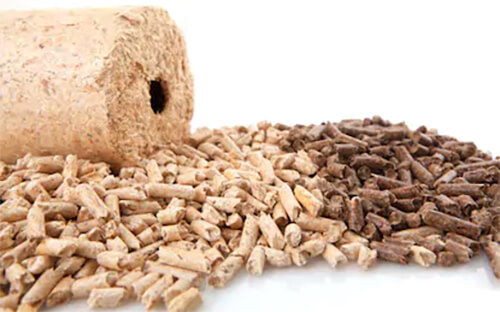Lifeasible offers quality technical consulting, project design, and process optimization services for two kinds of solid biofuel production technologies- biomass solidification technology and pyrolysis technology. These soild biofuel production technologies can convert biomass materials to soild biofuels to make them more convenient to use.
With the rapid consumption of coal energy worldwide, existing solid non-renewable energy sources are gradually depleted. Faced with this situation, there is an urgent need to develop solid renewable energy to reduce the dependence on traditional solid fuel and mitigate the impact of traditional solid fuel use on the environment. Solid biofuel is a renewable, environment-friendly clean energy and a major component of renewable energy that with industrialization and large-scale production prospects. Therefore, Lifeasible is committed to helping customers improve the level of technologies in solid biofuel production, and helping them to accelerate technological innovation and access high quality products.
Solid biofuel, compared to liquid biofuel or gaseous biofuel, is often cheaper, easier to extract, and more stable to transport. Generally, wood, branches, straw and sawdust also belong to solid biofuel, it is convenient to use them as fuel, but it is not convenient to transfort due to different shapes. Furthermore, the environmental burden may be increased when burning them directly. Therefore, in order to obtain environmentally friendly solid biofuel, these biomass materials need to be processed. The methods for solid biofuel production usually include biomass solidification technology and pyrolysis technology.

Biomass Solidification Technology
Biomass materials such as crop straw, sawdust, pine branches and sawdust generally have different shapes with a relative small density, therefore they are always bulky and inconvenient to transport and use, and needed to be processed in order to use them conveniently. Biomass solidification technology solves the problem of low biomass density, as well as inconvenient transportation and storage. Rational use of biomass solidification production processes and equipment increases the energy efficiency of biomass.

Direct combustion of wood and other forestry by-products not only produces polluting gases, but also has low energy efficiency. In order to solve these problems, a pyrolysis process can be taken to increase the energy density of solid biofuel. Pyrolysis is the process of decomposing organic material at high temperatures without oxygen. Due to the anoxic condition, the organic matter is decomposed into bio-bar instead of burning. In recent decades, pyrolysis has received increasing attention as an effective method for converting biomass into biofuel, Lifeasible owns mature experience to help customers utilize pyrolysis technology to produce solid biofuel from biomass materials, which is with high fuel-to-feed ratios.
Lifeasible offers experienced technical support services in solid biofuel production, we can not only help to solve the problems of customers in the production technology, but also offer production project design services, which will meet your needs in terms of biomass material types and products. In addition, we offer services that are optimized for some processes to enable customers to get products that meet their requirements. If you are seeking for high quality technical consulting, project design and process optimization services for solid biofuel production, Lifeasible can be a great choice for you. Please feel free to contact us.
Lifeasible has established a one-stop service platform for plants. In addition to obtaining customized solutions for plant genetic engineering, customers can also conduct follow-up analysis and research on plants through our analysis platform. The analytical services we provide include but are not limited to the following:
Get Latest Lifeasible News and Updates Directly to Your Inbox
Adaptive Evolutionary Mechanism of Plants
February 28, 2025
Unraveling Cotton Development: Insights from Multi-Omics Studies
February 27, 2025